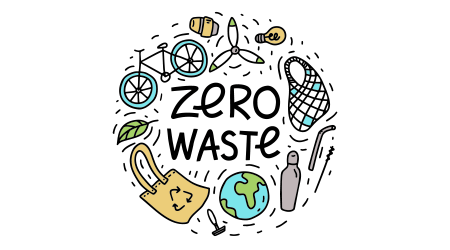
The concept of zero-waste stores gained momentum in the last five years. But, this concept is still unfamiliar to a large portion of the population. So, let’s know what a zero-waste store is before proceeding with some facts about it.
A zero-waste store also called a sustainable store or a sustainable supermarket that is a shop with plastic-free packaged products made out of sustainable raw material. Both these aspects are part of a sustainable store, package-free, and sustainable raw material.
There are zero-waste supermarkets, grocery stores, personal care shops, and more. The first zero-waste shop was opened in London, in 2007, called ‘Unpackaged’. But, there were not many. The last five years have seen good growth in the number of zero-waste stores all around the world.
The basic concept behind zero-waste stores is selling package-free products to reduce the waste generated by our shopping. If some products cannot be sold package-free, they are sold in plastic-free packaging. Some common practices carried out to set up a zero-waste store includes packaging and shipping all products with plastic-free shipping materials like 100% water-activated paper tape, compostable shipping labels, post-consumer boxes, recycled padded mailers, corn starch packing peanuts, and more.
Everything can be composted, reused, or recycled, and is 100% biodegradable. Customers can shop for fruits, vegetables, grains, spices, pasta, and even cosmetics. Every consumer good can be sold in such stores where no plastic packaging is allowed. Shoppers can bring their reusable cloth pouches or glass containers to carry the food or buy reusable containers at the store. When they’re done, they take their food home in paper bags.
There are zero-waste stores in Europe, the United States, Canada, Taiwan, South Korea, and proudly present in India. Zero-waste shop owners aren’t just concerned with plastic. They’re also said to pay extraordinary attention to how the food they stock is produced. Organic options are a must, and some stores stock only organic items. Owners are also said to be careful not to buy food from producers who exploit their labour force or are indiscriminate in their natural resources use.
Although it may seem like a business for a dedicated few, zero-waste entrepreneurs have shown that the dream is within reach for others. There are many inspirational stories about zero-waste stores in the regions of Tamil Nadu, Hyderabad, Delhi, Kolkata, Goa, Pune, and Bengaluru. You can also find references for pushing for zero waste India’s mountain states.
Zero-waste stores reduce millions of tons of waste from landfills every year. You can also see some stories about zero-waste stores onYouTube. If you do not have such a store in your area, try to live a zero-waste life. Even if one family in a colony goes waste-free, it will bring a significant impact.
About the Author: Riya is a pure soul who loves to explore herself and the world around her. “Writing has been magnetizing me since my early teenage years.”
